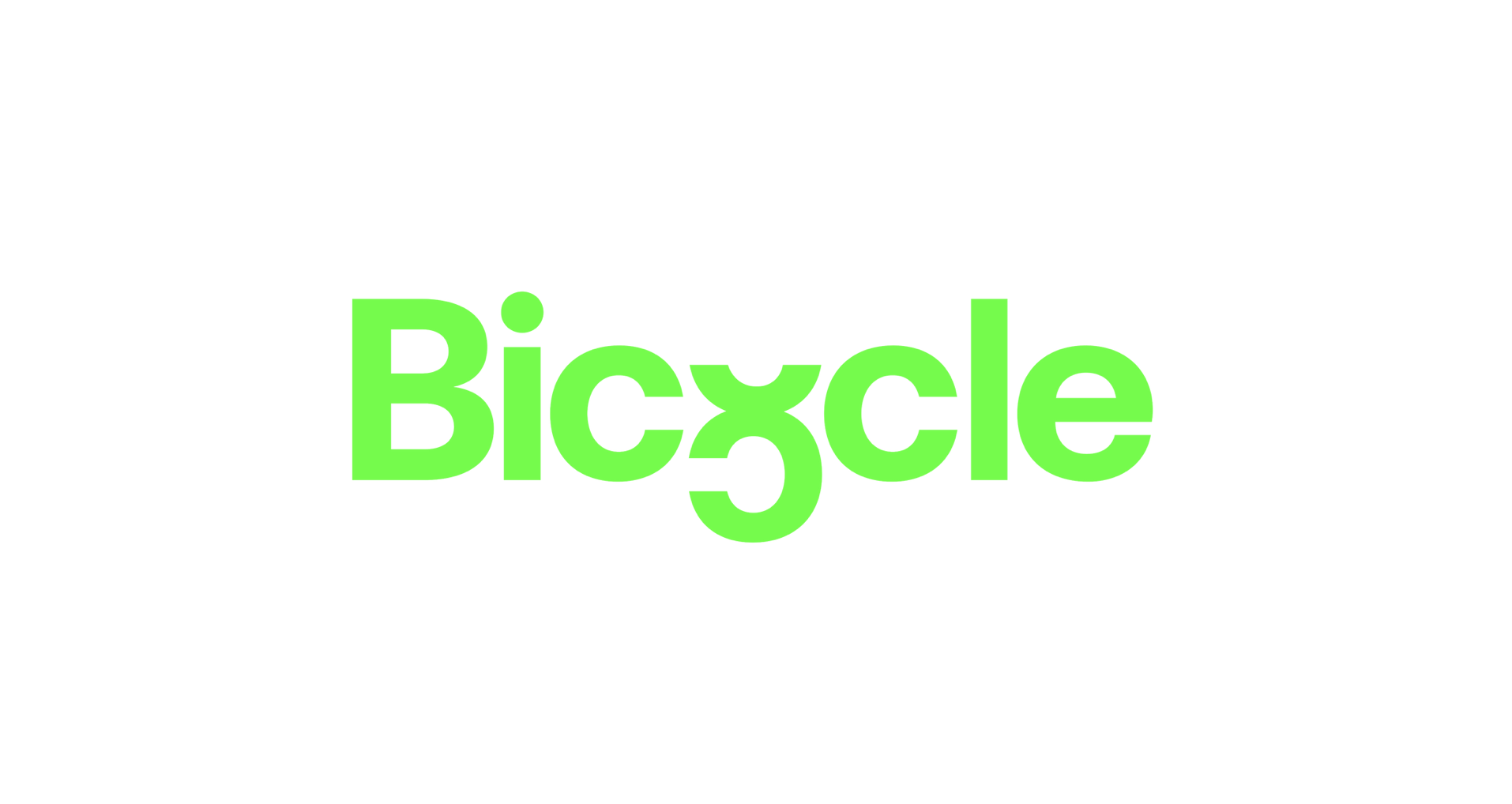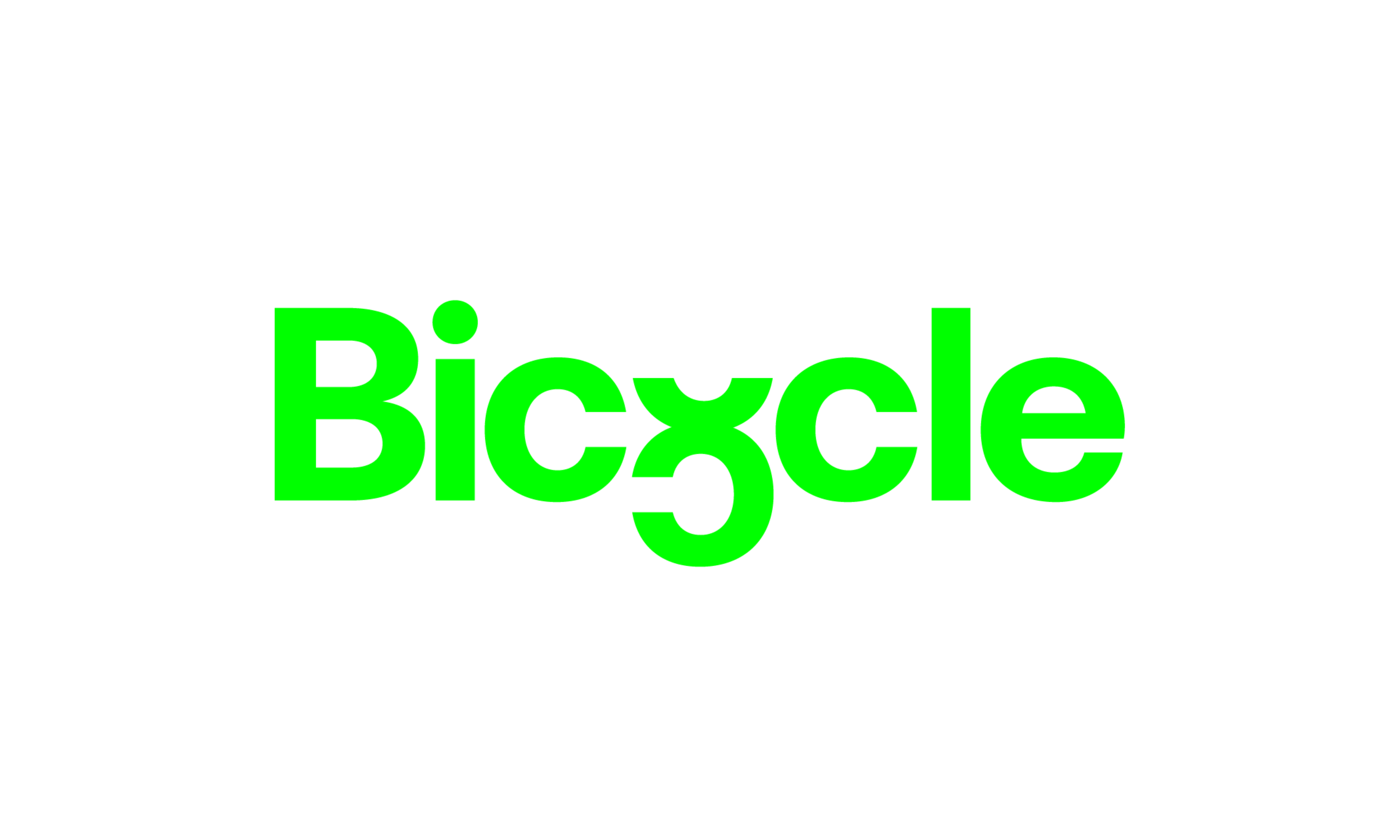

Bicycle London Limited

London Borough of Camden, United Kingdom
July 2023
Advertising & market research
Service with Minor Environmental Footprint
United Kingdom
Bicycle London is an independent media agency established in June 2021 by visionaries who recognised that a better type of media agency wasn't just possible, but was needed. As one of the world's fastest growing agencies, 2022 marked a year of exceptional achievements, with us proudly receiving The Drum's prestigious Global Start-up of the Year Award and earning a spot on Campaign's Start-up of the Year Award shortlist. While we take pride in our work, our greatest source of pride lies in our team. We are a diverse group of people from all walks of life, but are united by our shared passion for making a difference. At the heart of everything we do lies a clear and inspiring mission, one that drives our passion and purpose each day - "To leave the industry better than we found it. To create famous and impactful work that you want to tell your mum about. To make a living and have fun doing it." We are committed to driving positive change within the industry, challenging conventions, and continuously pushing the boundaries of what's possible. Through innovation, sustainable practices, and a dedication to ethical standards, we aim to set a new standard of excellence for others to follow.
Overall B Impact Score
Governance 18.3
Governance evaluates a company's overall mission, engagement around its social/environmental impact, ethics, and transparency. This section also evaluates the ability of a company to protect their mission and formally consider stakeholders in decision making through their corporate structure (e.g. benefit corporation) or corporate governing documents.
What is this? A company with an Impact Business Model is intentionally designed to create a specific positive outcome for one of its stakeholders - such as workers, community, environment, or customers.
Workers 37.0
Workers evaluates a company’s contributions to its employees’ financial security, health & safety, wellness, career development, and engagement & satisfaction. In addition, this section recognizes business models designed to benefit workers, such as companies that are at least 40% owned by non-executive employees and those that have workforce development programs to support individuals with barriers to employment.
Community 22.6
Community evaluates a company’s engagement with and impact on the communities in which it operates, hires from, and sources from. Topics include diversity, equity & inclusion, economic impact, civic engagement, charitable giving, and supply chain management. In addition, this section recognizes business models that are designed to address specific community-oriented problems, such as poverty alleviation through fair trade sourcing or distribution via microenterprises, producer cooperative models, locally focused economic development, and formal charitable giving commitments.
Environment 6.8
Environment evaluates a company’s overall environmental management practices as well as its impact on the air, climate, water, land, and biodiversity. This includes the direct impact of a company’s operations and, when applicable its supply chain and distribution channels. This section also recognizes companies with environmentally innovative production processes and those that sell products or services that have a positive environmental impact. Some examples might include products and services that create renewable energy, reduce consumption or waste, conserve land or wildlife, provide less toxic alternatives to the market, or educate people about environmental problems.
Customers 0.9
Customers evaluates a company’s stewardship of its customers through the quality of its products and services, ethical marketing, data privacy and security, and feedback channels. In addition, this section recognizes products or services that are designed to address a particular social problem for or through its customers, such as health or educational products, arts & media products, serving underserved customers/clients, and services that improve the social impact of other businesses or organizations.